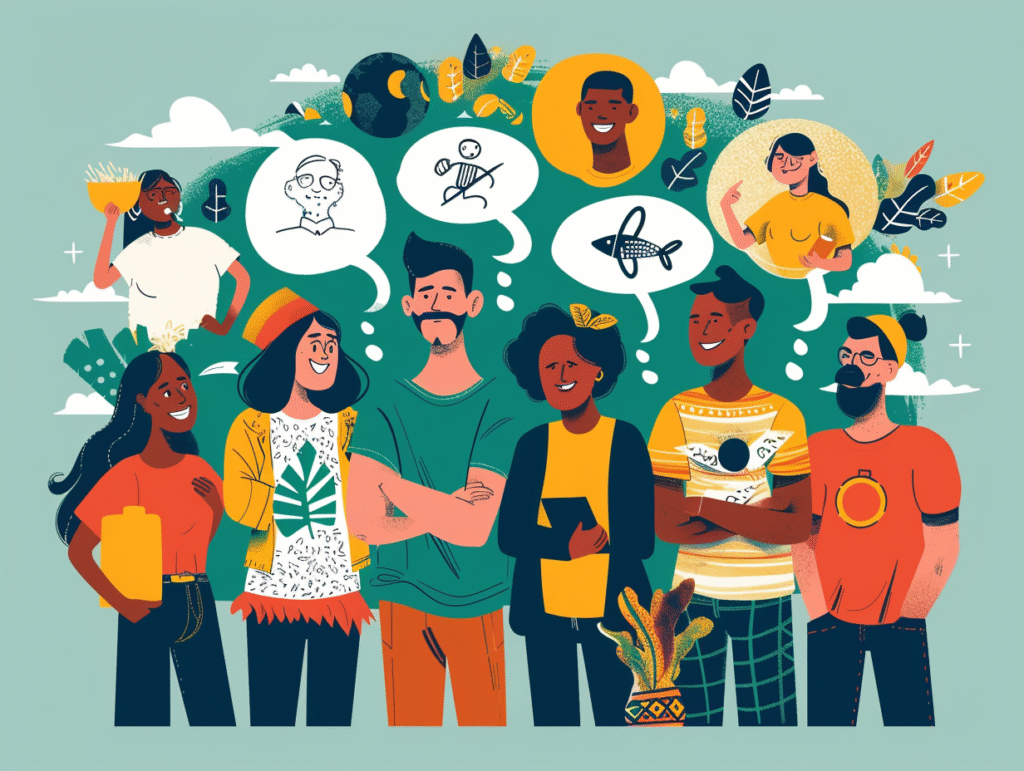When confronting the significant life decisions such as changing our professions, saving our money, or selecting an academic direction we find ourselves questioning: shall I follow my gut, think it over, or get other people to give me advice? In his latest epic study, Grossmann and colleagues (2025) attempted to provide answers to this eternal question across all cultures. The study tested the preferences of four decision strategies in 12 countries and recruited over 3,500 participants speaking 13 languages, including two Indigenous Amazonian groups, to test them.
Intuition (gut feelings)
Deliberation (prudent thinking)
Friends’ advice
Wisdom of crowds
The results show a human regularity that is dramatic: self reliance by intuition or deliberation rules in all cultures, although with varying degrees of effectiveness, based on cultural orientation and individual characteristics.
The Research: Experimenting Decision Preferences around the World
The researchers had the participants to rate six dilemmas which were realistic like assisting a neighbor prior to planting a season, spending family money, or selecting a university. Concerning each dilemma they pointed to:
What plan they themselves most preferred.
Of which they felt the wisest.
What they thought was the most preferred by the majority in their culture.
The dilemmas underwent modification to achieve cultural relevance, with the input of some local anthropologists and linguists. In Ecuador and Peru, the interviews were conducted verbally with local interviewees, whereas others were interviewed via surveys on the internet or paper.

Key Findings
Independence Triumphs Everywhere.
Personal deliberation was the most preferred strategy across all societies, whereas intuition was next to it. Ranging from 69 percent to 87 percent of the participants in the country favored independent methods. However, it was found that only 9-22 percent followed the advice of friends and only 2-12 percent followed the wisdom of crowds.
Preference Equates to Perceived Wisdom.
Participants when questioned about the strategy that appeared to be the most prudent followed the same pattern: deliberation was the first, intuition was the second, friends, and crowd wisdom came with the last. This implies the idea that people consider it not only best, but also smarter to make the decision by oneself.
Norms vs. Personal Choices
Interestingly, a self-reliant tendency was personally inclined, though the members of the culture commonly thought that other people should depend on their friends. In South Africa, Ecuador, South Korea and India to mention but a few, the respondents believed that the most prevalent cultural practice was advice-seeking, yet themselves preferred deliberation or intuition.
Culture Makes Strength, Not Direction.
The desire to be self reliant was common, although it was
amounts differed:
The most tilted towards deliberation were independent cultures (e.g., USA, South Africa).
Interdependent cultures (e.g., Japan, India) were more open to advice, and yet tended to make decisions that are self reliant.
Self reliance was also preferable to the indigenous communities of the Amazonians, implying that this kind of tendency is not unique to Western or industrial societies.
Personal differences are important.
It was also discovered that personality influenced decision preferences:
Independent self construal or need of cognition specified the people who were more likely to select self reliance.
The individuals who were high in self transcendent reflection (perceiving the problems in various ways) were more receptive to advice.
Why Do We Avoid Advice?
When collective intelligence is great, why do individuals choose to make independent decisions? The researchers can give many reasons:
Autonomy bias: It is gratifying to do things on your own.
Naive realism: We perceive our vision as a singularly objective.
Social costs: Asking someone to help may indicate incapability or cause debts in close societies.
Vividness of information: When we think something we think of it as more vivid than when other people are talking.
Concisely, individuals might acknowledge the importance of advice in theory, but it is in practice that a feeling of safety and genuineness is experienced in self reliance.
Culture and Wisdom Implications
This paper questions the fact of many years that the independent cultures are self reliant and the interdependent cultures are advice seeking. Rather it demonstrates self reliance as the default mode of the entire world, by micro adjustments that is, by culture and introspection.
It also reframes wisdom. Wisdom might not be found in thoughtless following of intuition or advice; it is the understanding when to depend on others and also being able to trust oneself. According to the authors, cultures do not reverse our self reliant instincts which they fine tune.

Conclusion
Be it you are a farmer in Ecuador, a student in Canada and an office worker in Japan, it is likely that you will rather deliberate or act on your gut than on friends or crowds. This is a human universal tendency that shows the strong psychological attraction of autonomy and competence. However, it is in a world where people have to deal with complex collective problems that learning when to do the opposite of this instinct and apply the wisdom of others might be the next crossroad of cultural development.
Reference
Grossmann, I., Rudnev, M., Dorfman, A., Atari, M., Barr, K., et al. (2025). Decision-making preferences for intuition, deliberation, friends or crowds in independent and interdependent societies. Proceedings of the Royal Society B, 292: 20251355. https://doi.org/10.1098/rspb.2025.1355

